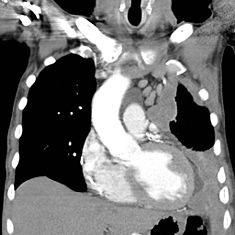
Please Visit and Join the WeHeal Mesothelioma Community
Information and References: MayoClinic | Mesothelioma.com | Asbestos.com | Wikipedia | Asbestos info on Mesothelioma.org | Veterans with Mesothelioma
Patient Resources and Related Organizations: Mesothelioma Patient Information
News and Media: News-Medical.org
Clinical trials: Clinicaltrials.gov | In Clinical Trials | EU Clinical Trials Register | WeHeal Guide to Researching Clinical Trials
Mesothelioma is an aggressive cancer affecting the membrane lining of the lungs and abdomen. It is a rare type of cancer in which malignant cells are found in the lining of the chest or abdomen. Exposure to airborne asbestos particles increases one’s risk of developing malignant mesothelioma. Mesothelioma is an aggressive cancer affecting the membrane lining of the lungs and abdomen.
Malignant mesothelioma is the most serious of all asbestos-related diseases. Exposure to asbestos is the primary cause and risk factor for mesothelioma.
Making a correct mesothelioma diagnosis is particularly difficult for doctors because the disease often presents with symptoms that mimic other common ailments. There is currently no known cure for mesothelioma, but treatments such as surgery and chemotherapy can help to improve the typical mesothelioma prognosis and even increase one’s life expectancy.
Three major types of mesothelioma exist and they are differentiated by the organs primarily affected. Pleural mesothelioma (affecting the lung’s protective lining in the chest cavity) represents about three-quarters of all mesothelioma incidence. Peritoneal mesothelioma, which affects the abdominal cavity, and pericardial mesothelioma, which affects the cardiac cavity, comprise the remainder.
Malignant mesothelioma is the most serious of all asbestos-related diseases. Exposure to asbestos is the primary cause and risk factor for mesothelioma.
Making a correct mesothelioma diagnosis is particularly difficult for doctors because the disease often presents with symptoms that mimic other common ailments. There is currently no known cure for mesothelioma, but treatments such as surgery and chemotherapy can help to improve the typical mesothelioma prognosis and even increase one’s life expectancy.
Three major types of mesothelioma exist and they are differentiated by the organs primarily affected. Pleural mesothelioma (affecting the lung’s protective lining in the chest cavity) represents about three-quarters of all mesothelioma incidence. Peritoneal mesothelioma, which affects the abdominal cavity, and pericardial mesothelioma, which affects the cardiac cavity, comprise the remainder.
Please visit and Join the WeHeal Mesothelioma Community
WeHeal is very grateful to our valued sources of information which include Wikipedia, WebMD, ClinicalTrials.gov, Cancer.gov, Infoplease, and the US CDC (Center for Disease Control).